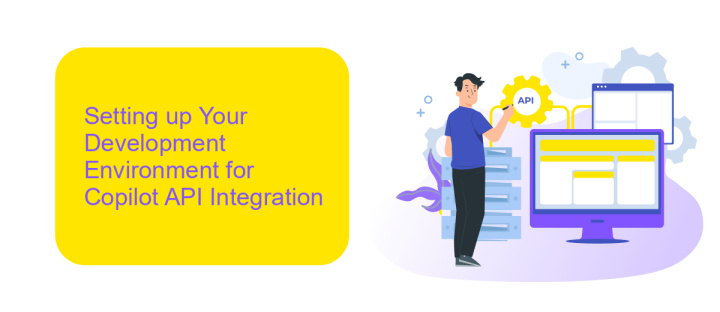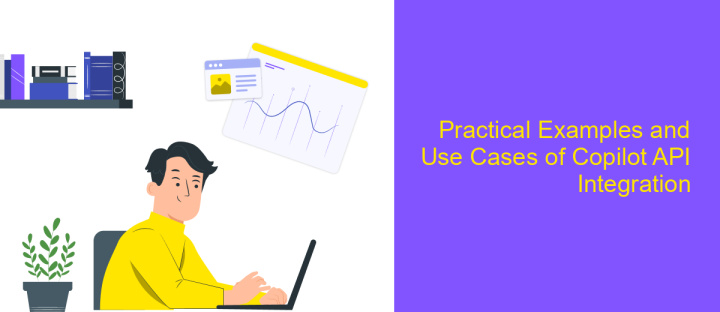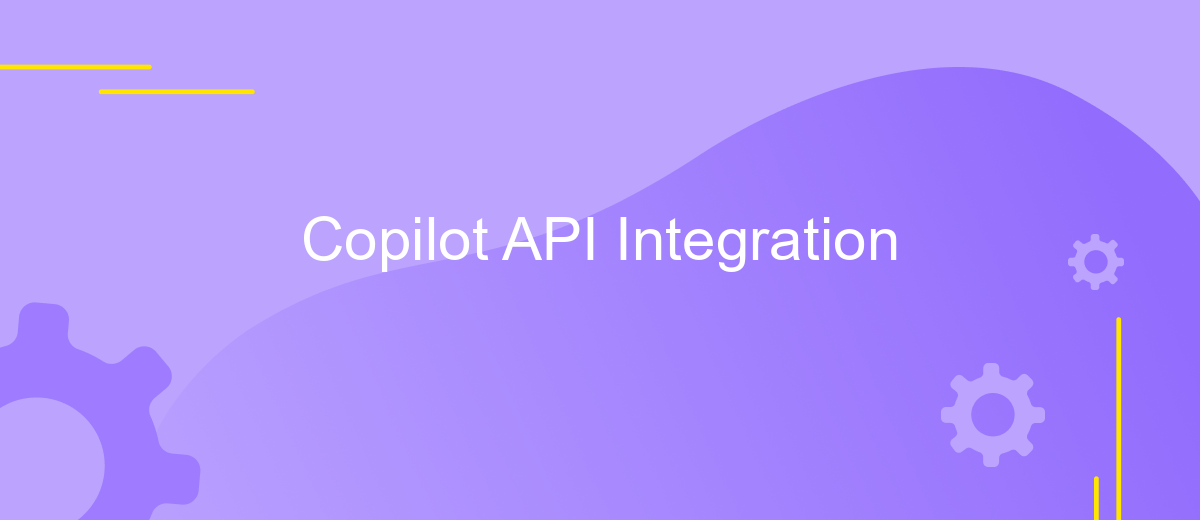Copilot API Integration
Integrating the Copilot API into your development workflow can revolutionize the way you write and manage code. This powerful tool leverages advanced AI capabilities to assist developers by providing intelligent code suggestions, automating repetitive tasks, and enhancing overall productivity. In this article, we will explore the steps to seamlessly incorporate Copilot API into your projects, unlocking new levels of efficiency and innovation in your coding practices.
Introduction to Copilot and its API
Copilot is an advanced AI-powered tool developed by GitHub in collaboration with OpenAI. It is designed to assist developers by providing intelligent code suggestions directly within their code editors. By leveraging the power of machine learning, Copilot can understand the context of the code being written and offer real-time assistance, thereby enhancing productivity and reducing development time.
- Seamless integration with popular code editors such as Visual Studio Code.
- Ability to generate code snippets, functions, and even entire modules based on natural language prompts.
- Continuous learning from vast repositories of code to improve suggestion accuracy.
The Copilot API extends the capabilities of this tool by allowing developers to integrate its features into their own applications and workflows. This API provides access to Copilot's powerful code suggestion engine, enabling developers to automate repetitive tasks and streamline their coding processes. By incorporating Copilot's API, developers can harness the full potential of AI-driven coding assistance, making software development more efficient and innovative.
Setting up Your Development Environment for Copilot API Integration

To begin integrating the Copilot API into your development environment, ensure that you have the necessary prerequisites installed. Start by setting up a robust code editor such as Visual Studio Code or JetBrains IDE, which provides excellent support for API development. Install Node.js and npm, as they are essential for managing dependencies and running JavaScript code. Ensure your environment is equipped with Git for version control, allowing you to track changes and collaborate efficiently. Access the Copilot API documentation to understand the endpoints, authentication methods, and data formats required for seamless integration.
Consider utilizing ApiX-Drive to streamline your integration process. This platform allows you to connect various applications and automate workflows without extensive coding. By leveraging ApiX-Drive, you can quickly set up triggers and actions that simplify the interaction between your application and the Copilot API. Additionally, ApiX-Drive provides a user-friendly interface to monitor data flow and troubleshoot issues, ensuring a smooth integration experience. With your environment ready and tools in place, you are well-prepared to harness the capabilities of the Copilot API in your projects.
Core Concepts and Key Features of the Copilot API

The Copilot API is a robust tool designed to enhance developer productivity by providing AI-powered code suggestions directly within your development environment. It leverages advanced machine learning models to understand and predict code patterns, making coding more efficient and less error-prone. By integrating the Copilot API, developers can receive context-aware code completions, reducing the need for extensive documentation searches and manual code writing.
- Contextual Code Suggestions: The API provides real-time code completions based on the current context, improving coding speed and accuracy.
- Language Support: It supports a wide range of programming languages, making it versatile for various development projects.
- Customizability: Developers can tailor the API’s suggestions to better fit their coding style and project requirements.
- Seamless Integration: The API is designed to integrate smoothly with popular code editors and IDEs.
Incorporating the Copilot API into your development workflow can significantly enhance productivity and code quality. By offering intelligent code suggestions, it allows developers to focus more on solving complex problems rather than getting bogged down in syntax and boilerplate code. This makes it an invaluable asset for both individual developers and large development teams.
Practical Examples and Use Cases of Copilot API Integration

Integrating the Copilot API into your applications opens up a world of possibilities for enhancing user experience and streamlining workflows. By leveraging this powerful tool, developers can automate repetitive tasks, provide intelligent code suggestions, and even facilitate real-time collaboration among team members. The API’s flexibility allows it to be adapted to various development environments, making it a versatile addition to any tech stack.
One of the most significant advantages of the Copilot API is its ability to learn from existing codebases and suggest context-aware code snippets. This feature not only accelerates the development process but also helps in maintaining consistency across projects. Moreover, the API can be used to create custom plugins that cater to specific industry needs, thereby enhancing productivity and innovation.
- Automated code completion and suggestions for faster development.
- Real-time collaborative coding sessions for distributed teams.
- Custom plugin development tailored to niche market requirements.
Overall, the Copilot API integration empowers developers to focus on creative problem-solving by reducing the cognitive load associated with manual coding tasks. As a result, teams can deliver high-quality software solutions more efficiently, driving business success and technological advancement.
- Automate the work of an online store or landing
- Empower through integration
- Don't spend money on programmers and integrators
- Save time by automating routine tasks
Best Practices and Troubleshooting for Copilot API Integration
When integrating the Copilot API, it is crucial to adhere to best practices to ensure a seamless and efficient implementation. Start by thoroughly understanding the API documentation, which provides essential guidelines and examples. Consistent version control and testing in a development environment can prevent disruptions in production. Utilizing a service like ApiX-Drive can streamline the integration process, offering tools to automate data synchronization and reduce manual errors. Additionally, maintaining clear and concise code with proper error handling will facilitate easier troubleshooting and maintenance.
If issues arise during the integration process, systematic troubleshooting is key. Begin by checking for common errors such as incorrect API keys or misconfigured endpoints. Logging and monitoring tools can provide insights into API calls and responses, helping to pinpoint the source of the problem. Collaborate with support teams or consult community forums for shared solutions to complex issues. By following these best practices and employing effective troubleshooting techniques, you can optimize your Copilot API integration for enhanced performance and reliability.
FAQ
What is Copilot API Integration and how does it work?
How can I start using Copilot API Integration in my project?
What are the benefits of using Copilot API Integration in software development?
Is it possible to automate the integration process of Copilot API with other tools or services?
What security measures should be taken when using Copilot API Integration?
Apix-Drive is a universal tool that will quickly streamline any workflow, freeing you from routine and possible financial losses. Try ApiX-Drive in action and see how useful it is for you personally. In the meantime, when you are setting up connections between systems, think about where you are investing your free time, because now you will have much more of it.


